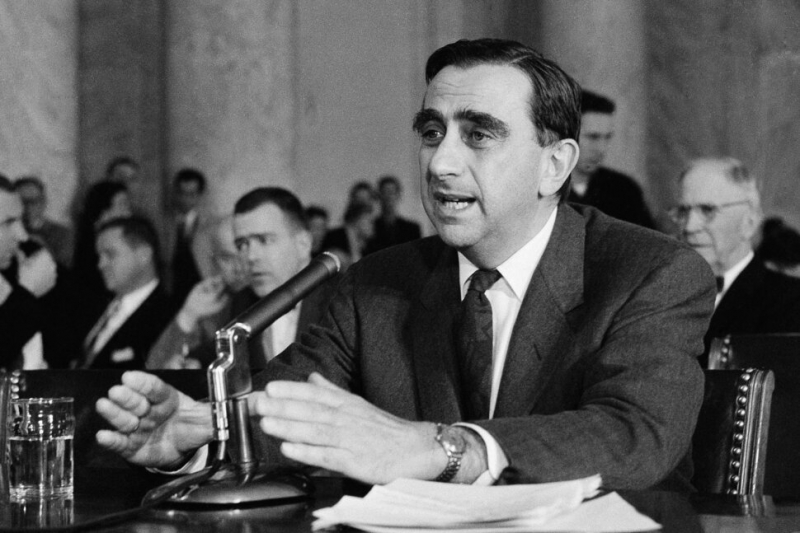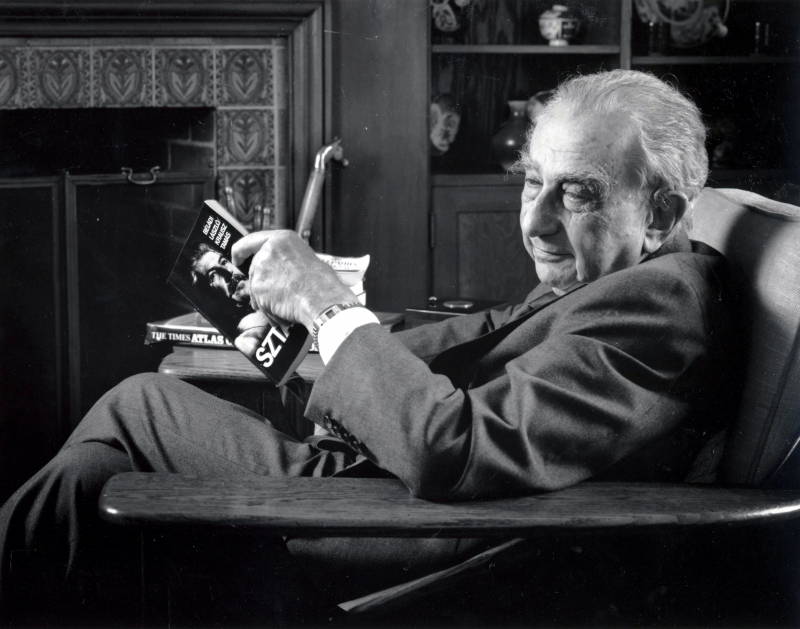Teller was involved in the Manhattan Project from the beginning
Teller was invited to participate in Robert Oppenheimer's summer planning seminar at the University of California, Berkeley, in 1942, for the beginnings of the Manhattan Project, the Allied effort to build the first nuclear weapons. Teller had been discussing the potential of atomic warfare with his friend and colleague Enrico Fermi a few weeks before, and Fermi had casually mentioned that perhaps a weapon based on nuclear fission could be used to trigger off an even greater nuclear fusion reaction. Despite his original explanation to Fermi as to why he thought the idea would not work, Teller was fascinated by the possibilities and rapidly became bored with the idea of just an atomic bomb, despite the fact that this was not yet anywhere near completion. Teller shifted the focus of the Berkeley session from the fission weapon to the prospect of a fusion weapon, which he dubbed the "Super," an early notion of what would later be known as a hydrogen bomb.
Teller was assigned to the Theoretical (T) Division. He was assigned the alias Ed Tilden. He was irritated that he had been passed up as its leader; the position was ultimately awarded to Hans Bethe. Oppenheimer assigned him to research novel techniques for constructing fission weapons, such as autocatalysis, which would increase the efficiency of the bomb as the nuclear chain reaction continued but proved impracticable. He also looked into utilizing uranium hydride instead of uranium metal, but its efficiency was negligible or less. Even though it was a low priority during the war, he continued to push his ideas for a fusion weapon.









